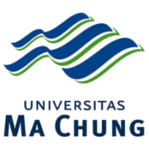MENAKAR PERAN PERGURUAN TINGGI DALAM PENGEMBANGAN INDUSRI BERKELANJUTAN
Abstract
The local community's ongoing agreement regarding plans to establish industries, as well as ongoing industries, certainly raises sociological and anthropological questions, namely what kind of relationship between the two, industry and society, has occurred so far. The most obvious case in this case can refer to the rejection of the people of Rempang Island, Batam City towards the plan to build Rempang Eco City, last September 2023. Seen from the perspective of the academic world, the problem of disharmony between the industrial world and local communities is important, apart from focusing on the relationship between the academic world and the industrial world. This paper with a desk research approach aims to describe the disharmonious relationship between the local community and the corporate community or the industrial world, looking for the root of the problem of rejection of investment and what offers universities can provide to the phenomenon of disharmony between the local community and the industrial world. The results of this research show that the implementation of a social permit to operate (SLO) is one of the agreements made to reconcile relations between local communities and investment and industry. In an effort to popularize SLO as a solution to the parameters of the relationship between the industrial world and local communities, the role of universities is very necessary.
References
Aldilal, A., Sanjaya, A. A., Akbar, N., & Febriansyah, M. R. (2020). Pemberitaan dan Opini Publik tentang Kedatangan Tenaga Kerja China Pada Masa Pandemi COVID-19 di Sulawesi Tenggara. Jurnal Ilmu Komunikasi, 18(3), 280. https://doi.org/10.31315/jik.v18i3.3789
Anastasya, N., & Wati, D. S. (2024). Analisis Hukum Terhadap Pelanggaran Hak Asasi Manusia Yang Terjadi Pada Kasus Sengketa Agraria di Pulau Rempang. INNOVATIVE: Journal Of Social Science Research, 4(1). https://j-innovative.org/index.php/Innovative/article/view/7865/5503
Aprianto, T. C. (2014). Reforma Agraria: Momentum Keadilan dan Kesejahteraan. BHUMI: Jurnal Agraria Dan Pertanahan, 39, 356–368.
Arifin, J. (2020). Budaya kemiskinan dalam penanggulangan kemiskinan di Indonesia. Sosio Informa: Kajian Permasalahan Sosial Dan Usaha Kesejahteraan Sosial, 6(2), 114–132.
Badera, J. (2014). Problems of the social non-acceptance of mining projects with particular emphasis on the European Union – a literature review. Environmental & Socio-Economic Studies, 2(1), 27–34. https://doi.org/10.1515/environ-2015-0029
cnbcindonesia.com. (2023, August 31). Geger Air Limbah Nuklir, PM Jepang Makan Ikan Laut Fukushima. https://www.cnbcindonesia.com/news/20230831102947-7-467764/geger-air-limbah-nuklir-pm-jepang-makan-ikan-laut-fukushima
Demuijnck, G., & Fasterling, B. (2016). The Social License to Operate. Journal of Business Ethics, 136(4), 675–685. https://doi.org/10.1007/s10551-015-2976-7
Herawati, N., & Sudagung, A. D. (2020). Persepsi Masyarakat dan Potensi Public Acceptance Terkait Wacana Pembangunan PLTN di Kabupaten Bengkayang. Jurnal Pengembangan Energi Nuklir, 22(2), 111. https://doi.org/10.17146/jpen.2020.22.2.6125
Humas. (2011, March 14). Kecelakaan Reaktor Nuklir Fukushima Dai’ichi di Jepang, Radiasinya tidak Sampai ke Indonesia. https://bapeten.go.id/berita/kecelakaan-reaktor-nuklir-fukushima-daiichi-di-jepang-radiasinya-tidak-sampai-ke-indonesia-134718
Jazuli, A. (2018). Eksistensi Tenaga Kerja Asing di Indonesia dalam Perspektif Hukum Keimigrasian. Jurnal Ilmiah Kebijakan Hukum, 12(1), 89. https://doi.org/10.30641/kebijakan.2018.V12.89-105
Meri, P.-O., & Ester, M. (2016). Konflik perusahaan-masyarakat di sektor perkebunan industri Indonesia. Center for International Forestry Research (CIFOR). https://doi.org/10.17528/cifor/006144
Mustofa, M. U., Raudya, M. D. K., Matni, F., & Sulaeman, K. M. (2022). Radikalisasi Grassroots Movements Dalam Politik Ekologi di Indonesia Pasca Reformasi. The Indonesian Journal of Politics and Policy, 4(1). https://journal.unsika.ac.id/index.php/IJPP
Pawero, A. M. D. (2021). Arah Baru Perencanaan Pendidikan Dan Implikasinya Terhadap Kebijakan Pendidikan. Dirasah: Jurnal Studi Ilmu Dan Manajemen Pendidikan Islam, 4(1), 16–32.
Que, S., Awuah-Offei, K., Demirel, A., Wang, L., Demirel, N., & Chen, Y. (2019). Comparative study of factors affecting public acceptance of mining projects: Evidence from USA, China and Turkey. Journal of Cleaner Production, 237, 117634. https://doi.org/10.1016/j.jclepro.2019.117634
Rini, H. S., Arsal, T., Umar, & Hidayatullah. (2016). ANALISIS PETA KONFLIK PEMBANGUNAN PABRIK PT. SEMEN INDONESIA DI KECAMATAN GUNEM KABUPATEN REMBANG.
SAVIRA, A. (2023). The Role of Social License to Operate in Geothermal Energy Power Plants Development in Indonesia (6). Graduate School of International Development, Nagoya University. https://doi.org/10.18999/forids.53.6
Soesilo, B. W., & Rudito, B. (2022). Social License as a Corporate Sustainability Strategy PT Pupuk Kalimantan Timur:(Case Study of The Tanjung Limau Floating Craft CSR Program). Indonesian Journal of Social Responsibility Review (IJSRR), 1(1), 13–19.

This work is licensed under a Creative Commons Attribution 4.0 International License.
Makalah yang disampaikan diasumsikan tidak mengandung bahan proprietary yang tidak dilindungi oleh hak paten atau aplikasi paten; tanggung jawab untuk konten teknis dan untuk perlindungan dari bahan proprietary merupakan tanggung jawab penulis dan organisasi mereka dan bukan tanggung jawab dari Jurnal Parsimonia atau Staff Pengelolanya. Penulis utama (pertama/yang sesuai) bertanggung jawab untuk memastikan bahwa artikel tersebut telah dilihat dan disetujui oleh semua penulis lain. Hal ini merupakan tanggung jawab penulis untuk mendapatkan semua izin pelepasan hak cipta yang diperlukan untuk penggunaan setiap materi dalam naskah sebelum pengajuan.









